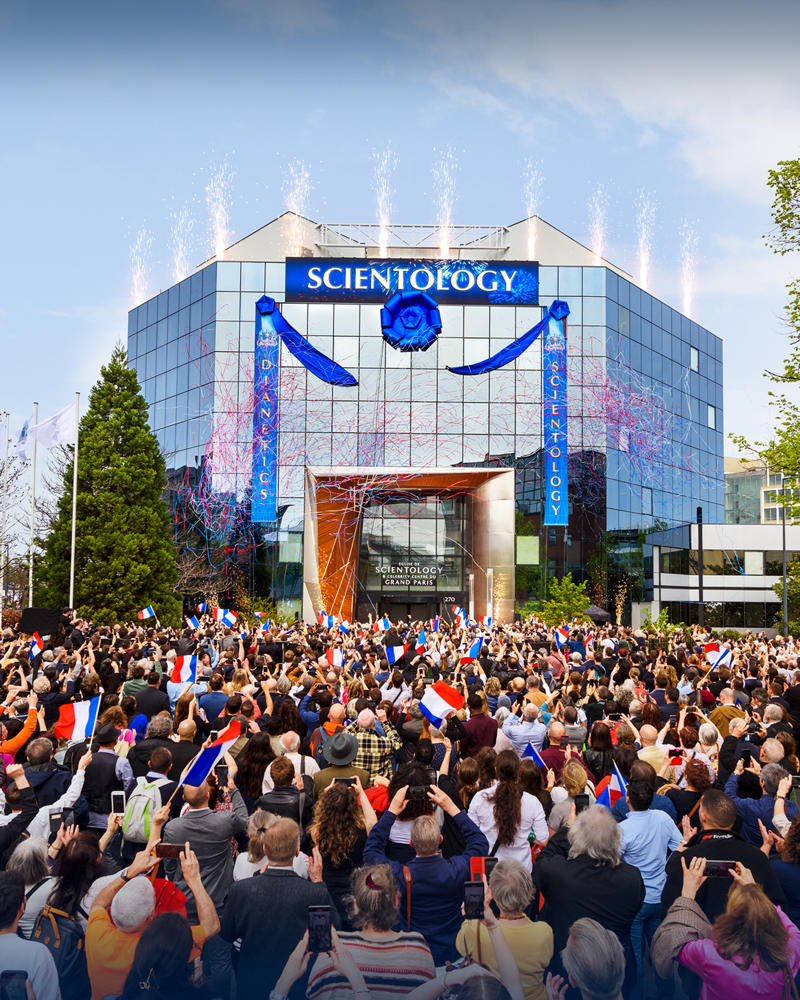Inside Scientology: A Deep Dive into Its Organizational Structure
Inside Scientology: A Deep Dive into Its Organizational Structure
Blog Article
The Advancement of Scientology: From Past to Existing
The history of Scientology is a complicated tapestry woven with the strings of its owner's ideas, the Church's trip with debate, and its present-day techniques. As Scientology arised from its infancy to become a global sensation, it has faced both adulation and scrutiny. Understanding how this reasonably young faith has advanced gradually drops light on its impact on culture and its fans. From the enigmatic origins of L. Ron Hubbard's trainings to the modern methods of the Church, tracing the advancement of Scientology offers a distinct window right into a world that remains to intrigue and polarize.
Origins and Founder of Scientology
Founded in the 1950s by science fiction author L. Ron Hubbard, Scientology arised as a new religious movement with beginnings in self-help methods and spiritual exploration. Hubbard asserted that with Scientology practices, people might clear themselves of adverse past experiences (engrams) and achieve spiritual enlightenment.

Development and Expansion of the Church
The Church of Scientology has experienced substantial growth and growth worldwide since its creation in the 1950s under the management of L. Ron Hubbard. Today, the Church has a presence in over 160 countries, with greater than 11,000 churches, objectives, and relevant organizations. This growth is fueled by a specialized international network of Scientologists that are committed to the mentors and practices of the religious beliefs.
Among the vital variables adding to the growth of Scientology is its extensive outreach programs and community efforts. The Church proactively takes part in social betterment programs, medicine prevention campaigns, human legal rights advocacy, and calamity relief initiatives. These activities not just elevate recognition about Scientology but likewise show the Church's commitment to boosting culture.
Additionally, the Church's use modern innovation and media systems has played a vital function in broadening its reach. With a strong on-line existence, including sites, social networks channels, and streaming services, Scientology has actually had the ability to link with a wider audience and spread its message globally. As the Church proceeds to advance and adjust to the altering world, its growth and expansion reveal no indicators of decreasing.
Objections and conflicts
Amidst its worldwide growth and outreach campaigns, Scientology has actually dealt with a substantial amount of conflicts and criticisms from numerous quarters. Furthermore, Scientology's deceptive nature and stringent policies relating to dissent have elevated concerns regarding liberty of speech and specific autonomy.
In Addition, the Church has been embroiled in lawful battles and rumors, with accusations varying from tax obligation evasion to civils rights abuses (Scientology). The top-level nature of several of these debates has better fueled public analysis and adverse perceptions of Scientology. Critics have likewise indicated the company's lack of openness and liability, specifically regarding its financial resources and therapy of members
In action to these objections, Scientology has typically emphatically refuted any kind of misbehavior and depicted itself as a target of discrimination and bias. Nonetheless, the conflicts bordering the Church remain to continue, shaping its public Source picture and credibility in the eyes of numerous.
Modern Practices and Beliefs
Exactly how has Scientology adapted its techniques and beliefs in feedback to contemporary social modifications and challenges? Scientology, established by L. Ron Hubbard in the 1950s, has advanced over the years to deal with modern problems while continuing to be true to its core tenets.
In regards to beliefs, Scientology has kept its essential concepts while translating them in manner ins which resonate with present-day fans. The emphasis on individual growth, spiritual growth, and the pursuit of a greater state of existence stays central to Scientology's mentors. Nonetheless, the organization has actually likewise included discussions on psychological health, mindfulness, and wellness to resolve the psychological and mental obstacles prevalent in today's culture.
Effect On Culture and Followers
Having adjusted its methods and beliefs to align with contemporary patterns and obstacles, Scientology's influence on society and its followers has been profound and far-ranging. In today's globe, Scientology proceeds to influence culture with numerous initiatives focused on dealing with social issues, promoting individual development, and supporting for civils rights. The Church of Scientology participates in extensive neighborhood outreach programs, academic efforts, and catastrophe alleviation initiatives, showing a dedication this page to making a favorable distinction on the planet.
Moreover, Scientology's impact on its fans is noticeable in the means it forms their ideas, worths, and habits. Followers frequently credit the religion with providing them a feeling of objective, individual growth, and spiritual satisfaction. The tight-knit community fostered by Scientology additionally plays a substantial duty in the lives of its participants, providing support, guidance, and a feeling of belonging.
Verdict
Finally, Scientology has actually developed considerably because its beginning by L. Ron Hubbard in the 1950s. The Church has actually turned into a worldwide organization with a significant following, despite facing disputes and objections. Modern ideas and techniques proceed to shape the Church's effect on culture and its fans, highlighting the ongoing development of Scientology as a religious movement.
The background of Scientology is a complex tapestry woven with the threads of its owner's beliefs, the Church's journey via conflict, and its present-day techniques. From the enigmatic beginnings of L. Ron Hubbard's mentors to the contemporary techniques of the Church, tracing the evolution of Scientology provides an unique home window into a world that proceeds to intrigue and polarize.

Modern techniques and ideas continue to form the Church's impact on Going Here culture and its fans, highlighting the continuous advancement of Scientology as a religious activity.
Report this page